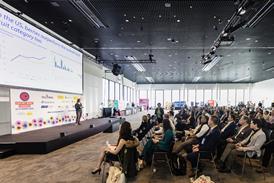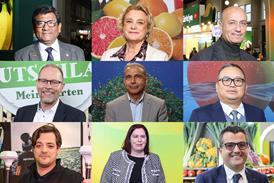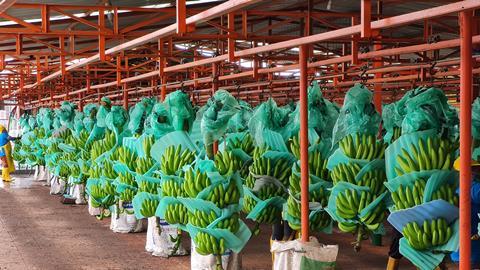El Niño, labour relations and shared responsibility for sustainability will be major talking points at international convention in Guayaquil, Ecuador
Climate change and sustainability will be key topics at the Banana Time convention in Ecuador, as producers grapple with the huge challenge of El Niño.
Taking place on 24-27 October, the event in the port city of Guayaquil will include a thorough review of the twin climatic phenomena of El Niño and La Niña in Ecuador.
Organised by the Association of Ecuadorian Banana Exporters (AEBE), the event’s conference programme will include analysis of the impact of El Niño on banana production. And it will highlight how the AEBE’s network of meteorological stations helps growers make production decisions in the face of climate change.
More than 70 per cent of Ecuadorian growers have already seen climate change have a major impact on their farms. Indeed, climate impacts are estimated to have reduced producers’ incomes by 15.7 per cent on average over the past two years.
It is estimated that the El Niño phenomenon could cause the loss of up to 50,000 hectares of banana plantations, equivalent to 1,365,000 tonnes (worth almost $600m) in lost exports.
Banana growers in Orense, in the south of Ecuador, have been hit hard, but this hasn’t always been reflected in the price per box paid by exporters of the fruit.
Other sessions at the international trade show/conference – the 20th organised by the AEBE – will explore initiatives to measure and reduce the carbon and water footprint of banana production in Ecuador, as well as the contributions of the FAO World Banana Forum to sustainability.
Speakers will discuss how promoting shared responsibility for sustainability among all actors in the supply chain can help producers comply with the new rules, regulations and demands of the international market.
Emphasis will be placed on the need to link product prices to the costs of sustainable production, so that producers alone aren’t expected to bear the cost of environmental measures and higher wages.
Workers’ rights, conditions and pay will also be up for discussion in a session highlighting the social challenges and progress for the Ecuadorian banana.
“We want to make known the efforts that Ecuador is making in social and environmental sustainability, with advanced regulations that accompany the responsible work of our companies,” said José Antonio Hidalgo, executive director of AEBE.
“This ranges from compliance with the Living Wage, to the work to promote and renew the first manual on occupational health with international organisations and local authorities, to always look after our workers who are the most important thing in our chain.
“In terms of sustainability, Ecuador is ready and willing to increase its leadership in the most demanding markets.”
The event is aimed at industry experts as well as the general public, with the goal of developing and growing exports of Ecuadorian bananas – one of the country’s biggest exports.
Despite a 6.6 per cent decrease in banana exports from Ecuador in 2022 – driven by the war in Ukraine, worker strikes and the depreciation of the dollar against the euro – Ecuador remains the world’s largest banana exporter by some distance. The country exported 354.6 million boxes of bananas in the 12 months from January to December 2022, according to the AEBE.
Click here to register for Banana Time 2023 or find out more information.







